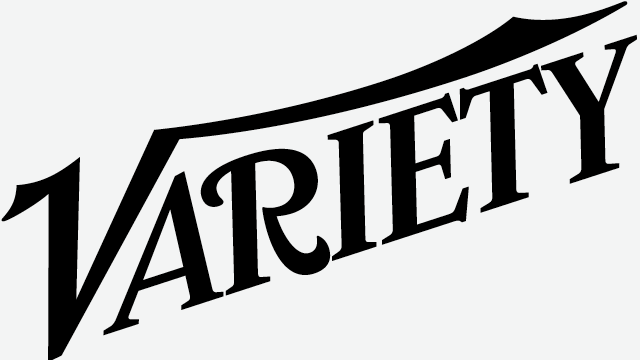Dallas Theater Review: ‘Hood: The Robin Hood Musical Adventure’

It seems altogether appropriate that John Lee Beatty’s simple but eminently serviceable wooden set for “Hood: The Robin Hood Musical Adventure” — now having its world premiere at the Dallas Theater Center, with an eye on Broadway — resembles nothing so much as the interior of an outbuilding on some rural homestead. That’s because every element of this spirited production feels infused with the sort of industrial-strength enthusiasm one normally associates with old movies in which someone exclaims: “Hey! My uncle’s got a barn! Let’s put on a show!”
That impression is reinforced by Gregory Gales’ amusingly faux-tacky costume design, which incorporates bottle caps, aluminum soda can tabs, and what appear to be recycled blankets and draperies. There’s also copious doubling, tripling and quadrupling in several roles by the merry men and women assembled for the 12-member cast. The audience is seemingly intended to imagine this dynamic dozen (along with a five-member onstage musical ensemble) have wandered into a rustic spot, improvised suitable attire, and conspired to play fast and loose with legends of the Bandit of Sherwood Forest. All of this may sound hokey, but the DTC staging makes it easy to be a believer.
“Hood” comes down to us through the centuries — a witty prologue reminds us just how many legends, books and Hollywood swashbucklers have spun off from the mythos — but this retelling has been smartly reconstituted for 21st-century sensibilities by librettist Douglas Carter Beane (who has directed the DTC production) and composer Lewis Finn, the duo behind Broadway musical “Lysistrata Jones.” It’s still the same old story, a fight for love and glory (and, yes, robbing from the rich and giving to the poor), but with some sharp new wrinkles.
In the medieval world according to Beane (“Cinderella,” “Xanadu”) and Finn, Maid Marian (a beguilingly feisty Ashley Park) is less a distressed damsel than a resourceful collaborator — one who, not incidentally, is a better archer than the Robin Formerly Known as Robert (Nick Bailey). The balladeer Alan A’dale (effectively played with just a hint of modern-day pop-rock strut by Ian Ferguson) strums a guitar boldly emblazoned with the same slogan that once adorned Woody Guthrie’s instrument of choice: “This machine kills fascists.” Jacob ben Widmar dials it up to 11, coming across as the love child of Paul Lynde and Charles Nelson Reilly in a scene-stealing portrayal of Will Scarlett as a cunning martial artist with a fabulous fashion sense.
But wait, there’s more: James Ortiz has cleverly designed a plethora of puppets, ranging from shadow-play tiny to humongous barn-size, to play the tyrannical Prince John and other troublesome geezers. The choreography by Joseph Pizzi and Robert Bianca is inventive and energetic, especially during extended chase sequences that are equal parts Noh Theater and silent-movie slapstick.
Beane’s suitably merry, zinger-rich libretto is littered with wink-wink, self-aware contemporary references, but never sinks to off-putting snark. Finn’s song score hits the sweet spot where country, traditional Broadway show tunes and decades of Top 40 radio converge. (Maybe it’s my imagination, but at least one tune sounds like it samples the classic 1958 novelty hit “Witch Doctor.”) Don’t be surprised if at least one of his tunes, the rousing “I Say Yes,” is embraced as a ubiquitous pop anthem with the irresistible punch of Katy Perry’s “Fight Song.”
One of the few updated elements that may require additional tinkering is the show’s conceptualization of a callow Robert of Loxley, who only gradually evolves into the heroic Robin Hood. Nick Bailey clearly has the panache and the pipes to shoulder the demands of playing the legendary figure. But at this stage of the game, he is required to remain diffident longer than he should. That doesn’t help much when he’s intended to provide dramatic contrast to the robust villainy of Austin Scott’s Sheriff of Nottingham.
Likewise, Alysha Umphress makes a major impact every moment she’s on stage as the brassy Meg, a childhood friend of Robert who winds up mentoring him in the finer points of fleecing the wealthy and enriching the impoverished. Unfortunately, she is offstage for long stretches, diluting the impact of her final scene.
And speaking of finales: The invigoratingly brisk pace of the DTC production briefly but noticeably flags during a fake-out resolution that precedes the much more satisfying ending. This is one of the very few moments when Beane the librettist is ill-served by Beane the director.
Minor quibbles aside, “Hood” appears, at this stage of its development, well on its way to an eventual appearance on the Great White Way. Beane and Finn’s “Lysistrata Jones” had an undeservedly short run on Broadway in 2011. All signs indicate that, this time, they’ll likely come closer to hitting the bullseye.
Get more from Variety and Variety411: Follow us on Twitter, Facebook, Newsletter

